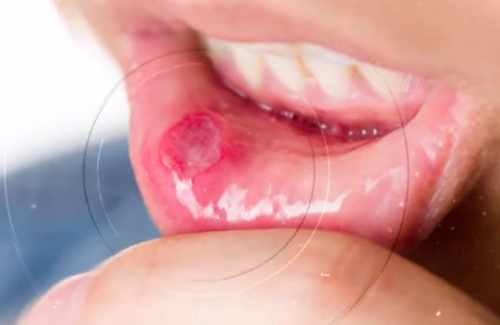It is a viral disease in which a characteristic rash appears on the skin and mucous membranes in the form of blisters. There are about 80 types of herpesviruses that cause chickenpox, shingles, and even some forms of cancer. But most often people are faced with herpes simplex virus, the symptoms of which appear on the face, lips, mucous membranes.
Herpes Simplex Virus
Types of herpes simplex virus (HPV):
- HSV-1 – affects the skin on the face, the red fringe of the lips, and the mucous membranes;
- HSV-2 – genital: causes rashes in the genital area and anus, provokes a specific inflammation of the appendages and cervix.
Once in the body, the pathogen often passes into the latent stage – it does not multiply and does not harm your health in any way. It can remain in such a state for a long time (and sometimes for the entire life of the host). But during the weakening of the immune system, the virus quickly becomes active and declares itself with unpleasant symptoms.
Some herpesviruses can cause extremely severe pathologies, up to and including death. Herpes simplex virus is not life-threatening, and in its presence in the body immunologists have recently discovered a positive. According to scientists, the pathogen can protect against COVID-19. However, the hypothesis still needs further confirmation.
How Is Herpes Transmitted?
Infection with herpes infection occurs in several ways:
- Aspiration (by inhaling droplets of infected fluid excreted by a carrier virus when coughing or sneezing);
- Contact (through damaged mucous membranes through kissing, sharing utensils or towels)
- Sexual;
- vertical (transfer from mother to child during childbirth).
Patients with pronounced clinical signs are the most dangerous. After the blisters dry up, the risk of infection decreases. But the virus can also be transmitted by a carrier of the infection who does not have any signs of the disease.
How Does It Appear?
The most common manifestation of herpes is a “cold” on the lips. Before the rash, symptoms appear:
- Tingling, slight tingling, itching;
- Redness in the areas of the future rash;
- The appearance of blisters.
- All blisters burst almost simultaneously. They are replaced by drying crusts, after which the wounds heal.
HSV-1 can cause rashes both on the lips and in the intimate area. HSV-2 occurs only on the genitals. Genital herpes has some specific features:
- slight swelling in the groin, appearing simultaneously with burning and itching;
- Numbness and pain in the back;
- malaise, sometimes a rise in temperature;
- blisters may appear not only on the genitals, but also on the pubis, thighs, buttocks.
Recurrence may occur from several times a month to once a year. It largely depends on the state of the immune and endocrine system of the carrier.
What Causes Herpes Recurrence?
It is generally believed that a relapse is due to a decrease in immunity. However, the weakening of immune forces is also caused by certain reasons.
Factors provoking a relapse of the disease include:
- starvation, lack of nutrients in the body due to dietary restrictions or diets;
- Chronic pathologies of the gastrointestinal tract (GIT);
- Menstrual periods or premenstrual syndrome (PMS);
- Overcooling or overheating of the body;
- stress;
- smoking;
- violation of sleep and rest patterns.
Psychosomatics also plays a certain role in the development of frequent exacerbations – more often the virus is activated in people with low self-esteem, insufficient self-esteem, loss of meaning in life.
Herpes becomes especially dangerous if its relapse coincides with the manifestation of any other infection. In such cases, there is often an increase in the symptoms of both diseases, and recovery is delayed.
How to Get Herpes Out of Your Body
There are no methods capable of permanently eliminating the pathogen from the body. But the medications used today allow you to forget about the virus for a long time, remaining only its carrier. Herpetic therapy uses agents for local application, tablets, antiviral solutions.
Treatment allows:
- Reduce viral activity, inhibit the reproduction of the pathogen. Forget about the presence of herpes helps Acyclovir (cream and ointment), Famcyclovir, Valacyclovir (tablets);
- Prevent the microorganism from entering new cells. Tromantadine is the most effective;
- Reduce symptoms. Panavir, Zovirax are used to treat blisters on the lips. At the first symptoms of the disease, Allokin-Alpha is injected subcutaneously.
Of the large number of existing drugs, the doctor selects the means taking into account the physiological characteristics of the patient.
Preventive Measures
Because of the high prevalence of the virus and the easy way of its transmission, it is almost impossible to provide complete protection. But compliance with a number of rules reduces the risk of infection.
Prevention includes:
- Hygiene – wash hands before eating, use only personal hygiene products, use clean utensils, avoid skin injuries.
- No adultery.
Reduce contact with patients with obvious signs of the disease.
Verdict
Herpes is a very unpleasant disease. Therefore you should adjust your lifestyle in such a way as to reduce the risk of infection. And if it is present in the body, do everything possible to prevent further transmission to other people.
About the Author
Reyus Mammadli is the author of this health blog since 2008. With a background in medical and biotechnical devices, he has over 15 years of experience working with medical literature and expert guidelines from WHO, CDC, Mayo Clinic, and others. His goal is to present clear, accurate health information for everyday readers — not as a substitute for medical advice.







